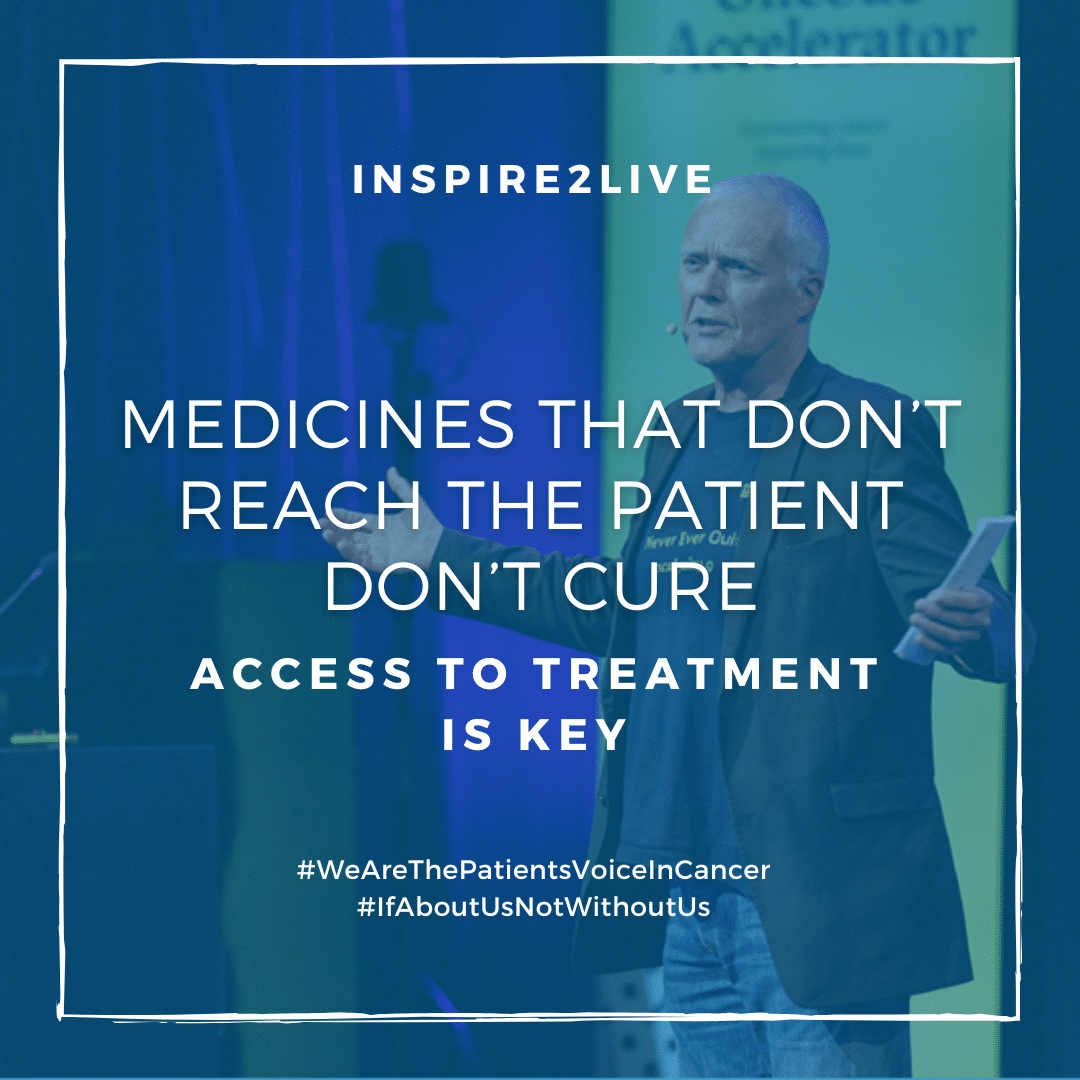On November 28, I was invited to speak at Oncode Accelerator, the Netherlands’ most prestigious cancer therapy development initiative: a €300 million research program to accelerate drug design and development. I was honoured and brought both a message and an assignment: ‘Medicines that don’t reach the patient don’t cure.’
The assignment stems from José Baselga’s statement at our 2011 Inspire2Live Annual Congress: ‘We’re not meant to be here for one- or two-months life extension. We can do better.’ Patients want to live to 87 with good quality of life. They don’t want to waste
€ 100,000 of taxpayers’ money for two months (or six) of extended life. And physicians don’t want to spend 50 years of their careers to say they saved the life of a mouse with pancreatic cancer.
If about us, not without us
So, what’s the solution? First, patients must realise that the medical industrial complex is dealing with their problems. Remember: ‘If about us, not without us!’ Work with us. Inspire2Live shows how stakeholders can cooperate. It started when Dr. Hanselaar, CEO of the Dutch Cancer Society, asked us to propose a research idea. Working with two researchers and a physician, later expanding to a full team, we chose to focus on cancer rehabilitation. That was in 2006, and now we know how to rehabilitate cancer patients.
Patients know which problems need solving and how to solve them. That’s why researchers, doctors, industry, and regulators, must work with patients in drug development – not just for comments, but from the very start. Co-design. Patients will tell you to abandon medicines that only extend life by a couple of months. They will tell you that they do not want severe side effects. Get rid of these medicines and do better.
You can’t discuss ethics and risks without involving patients
In drug design and development, we’re now facing social, political and ethical challenges. The ethical debates are the worst. How dare anyone discuss ethics and risks without involving patients? We are the ones taking the risks – we should be the ones deciding what risks are acceptable!
Dick van Bekkum and Jon van Rood developed stem cell transplantation in the 1970s and ‘80s. They discussed the ethical aspects directly with parents of sick children who would have died anyway. The first 200 transplanted children died. But the 201st child lived. Parents agreed to try because they had hope and wanted to be able to contribute to society and help future patients. As do patients today. Yet politicians, lawyers and policy makers have made a career of discussing social, political and ethical issues without involving patients.
Saying no to patients means paying twice – in lost lives and wasted time.
Peter Kapitein
Patient Advocate Inspire2Live

